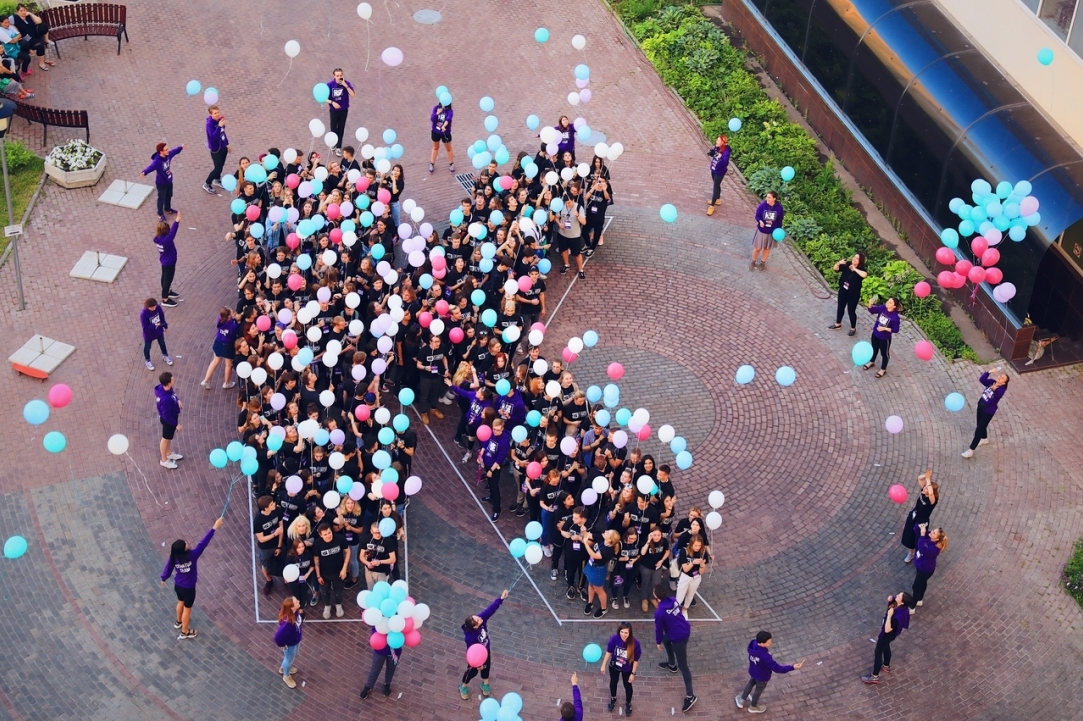HSE Curators - Best and Biggest Student Organization

Mission and tasks of curators
Curators are the most important people who are engaged in the adaptation of freshmen to university life, telling them about the opportunities that HSE students have, making them take part in extracurricular life, finding correct answers to the most complicated questions. They are first people whom freshmen meet and who help them during the most difficult period – adaptation in the university.
“What the curators gave us was the perception that we are in a very specific, but incredibly fun place where you can learn a lot, meet people, and each of this team with you on the same wavelength, everyone can always be asked for help”,
- said Yana Yavorskaya, a third-year student of the Oriental Studies Bachelor program.
Every group of freshmen is usually supervised by one or two curators, who work as one team with other curators of their education program.
Curators also can take on part of tasks of administrative department. So, in addition to helping with adaptation, curators can deliver important information to freshmen: remind them of the deadlines for submitting documents, inform them of upcoming events and changes in their curriculums and timetables.
Curators also collaborate between education programs to organize bigger events. The interaction is carried out through the Council of Responsible Curators and through the meetings of the curators.
Who is the perfect curator?
The ideal curator is a workaholic party-goer who is almost always in touch, but at the same time who is not total softie. But at the same time, he also acts as a quick response group.
(Maria Chernyakhovskaya, a third-year student of the Advertising and Public Relations Program)
Curators should not only be funny guys (surely, it is cool too), but also help more, in the beginning solve administrative issues and problems, advise guys a lot.
(Yana Yavorskaya, a third-year student of the Oriental Studies Program)
A way to become a curator
The Students of 1-2 undergraduate courses, become curators in the new academic year. To become a curator, students must undergo selection and training.
The selection process of students for curators consists of three stages: questionnaire, group selection and interview. Training includes two steps: a day in the School of Curators and a meeting to create an adaptation training for freshmen.
Yes, as it was previously said, curators have their own school - it is a project that has already become a tradition in HSE. During the main “school day” curators systematize knowledge of the most necessary primary resources, for example, about student organizations, media, Student Council. Also, participants have an opportunity to get to know each other and analyze possible conflict situations that occur in the work with the group of freshmen.
Since 2019, the School has been issuing foreign students who cooperate with faculties, departments of international student mobility, as well as with foreign student support centers.
The second block of training includes the analysis of adaptation training, which the curators will conduct in early September.
Yana Yavorskaya: I was guided by the criteria that the organizers of the School of Curators thought out. I won’t disclose all the secrets of the selections. The future curators can’t have study arrears and shouldn’t overload themselves; that was also important for me. Not everyone has the same point of view, but it seems to me that you cannot pay due attention to extracurricular life if you have study debts, especially retakes.
Curators at the initial stages create conversations for applicants of their educational program in social networks, where they share their experiences, talk about the difficulties they had to face, create a friendly and pleasant atmosphere. In social networks they also create groups and communities where they publish interesting and useful information about student life and so on. Then they do similar work with freshmen. Curators also can initiate meetings in the city center, parks or clubs.
Text by
Kristina Kondakova
